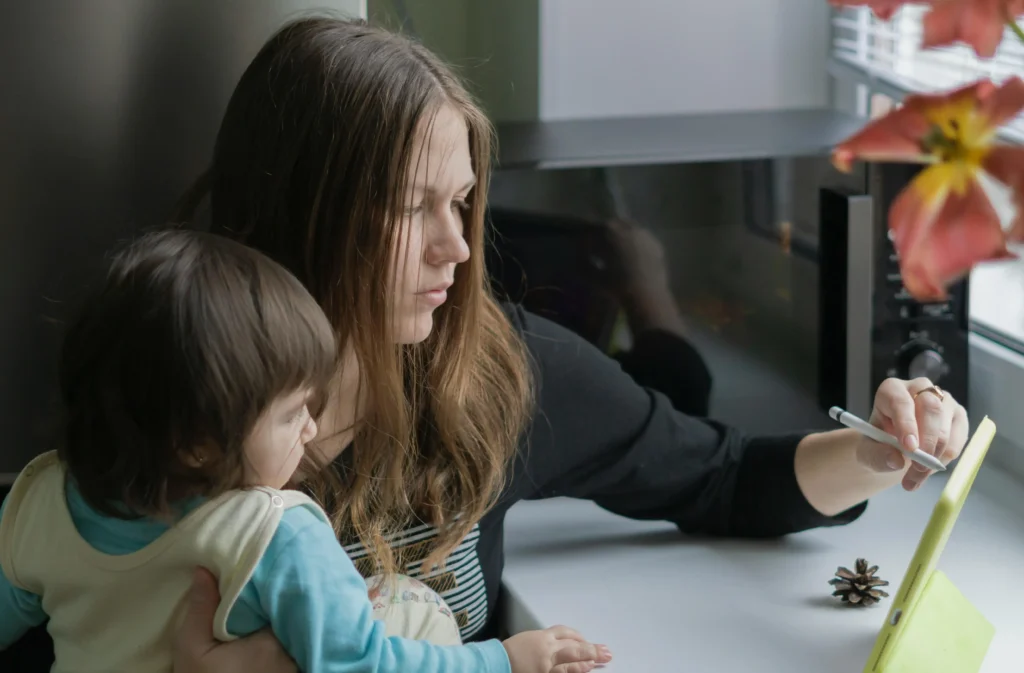
Understand the impact of screen time on children’s growth with insights from medical research and tips for a balanced digital life.
What did the children of the 90s do when there were no screens? They had more physical activities to do. In contrast, today’s world is highly digitized, and children are opening their eyes to constant screen exposure, which is concerning. Undoubtedly, technology has enhanced learning opportunities; however, it has also brought about potential concerns.
As a result, increased screen time can hinder children’s physical, mental, and emotional growth, essential for their overall well-being. Therefore, let us help you make informed decisions about screen usage through our detailed write-up.
Health and Physical Growth Issues Linked to Screen Time
Physical fitness is an essential component of one’s life. Excessive screen time can negatively impact both behaviour and health, contributing to issues such as obesity, hypertension or Diabetes. The American Academy of Pediatrics (AAP) advises limiting screen time to one hour daily for children aged 2 to 5 to reduce these risks.
Moreover, screen use before bedtime can disrupt sleep patterns, making it harder for children to fall asleep and causing restless nights. The study published in Pediatrics highlights that children who spend more than two hours a day on screens tend to have shorter sleep durations.
Cognitive Development of Children
Cognitive abilities are the most significant part of human life. However, if these abilities are hindered in early childhood, it can lessen the mental development of a child. Research from the National Institute of Health (NIH) found that children who spent more than two hours daily on screen-based activities scored lower on language and thinking tests.
Furthermore, the Journal of the American Medical Association (JAMA) reported that excessive use of screen media during early childhood can impede the development of executive function. Which includes skills like attention, memory, and self-control.
Creative and challenging screen time, which includes puzzles, educational apps or games, can help grow cognitive abilities to an extent. Still, consumption of unproductive stuff can hinder the development benefits. This is because such content is not challenging and does not contain creativity and problem-solving elements.
Therefore, there is a need to maintain a balance between educational and passive screen time. Also involvement of children in physical activities and social interactions.
Emotional and Social Development
Another impact of screen exposure could hinder social and emotional development. According to a study by the Child Mind Institute, children who spend more time on screens are more prone to behavioral issues, including increased aggression and anxiety. These kids can experience social isolation because of the lack of physical or emotional interactions, which are irreplaceable by virtual connections. In response, AAP suggests encouraging children to have tech-free times, especially during family meals, social gatherings or physical activities.
Additionally, it is crucial for parents to closely monitor their children’s screen use. In particular, they should keep an eye on the content their children consume. Also, they should set clear boundaries to protect them from potential emotional harm. By doing so, parents can create a safer digital environment that promotes healthy screen habits for their children.
Recommendations for Balanced Screen Time

- Set Screen Time Limits: As per AAP’s recommendation, screen time for children under 5 should be one hour daily. For children above 5, screen time should be determined based on age and balanced with other necessary needs and physical activities, essentially sound sleep.
- Prioritize Quality Screen Content for Children: It is important to ensure that the content your child is consuming is age-friendly and appropriate and supports their development. To achieve this, parents should priortize educational content that promotes learning and growth. Along with that, consider minimizing passive screen time for more productivity.
- Encouraging Physical Activities to Reduce the Screen usage: The guidelines of the World Health Organization (WHO) recommend that children should engage in at least 60 minutes of physical activity each day. This helps balance out the inactive lifestyle associated with screen use.
- Establishing Tech-Free Zones: There must be some areas in homes that should be tech-free zones. For example, TV screens should not be kept in bedrooms, and gadgets should not be allowed in the dining rooms. These practices can promote healthier habits and better physical interactions.
- Model Healthy Behavior for kids: It is a fact that children learn by observing whatever their parents practice. Thus, this is the perfect opportunity to build healthy habits in your kids by setting an example yourself.
Parents should reduce not only their children’s screen time but also their own. Additionally, they should engage in other activities with their kids that can positively influence their behavior and daily routines.
conclusion
While screens have become an integral part of modern childhood, managing their use is crucial to support children’s holistic growth. Parents can mitigate the adverse effects of screen time by setting clear boundaries, prioritizing quality content, and encouraging physical and social activities. The key is to strike a balance that promotes physical, cognitive, and emotional well-being in an increasingly digital world
We want to hear from you! What are your thoughts on this topic? Share your experiences and opinions in the comments below. Remember to share this post with your friends and colleagues if you enjoyed it. For more updates, subscribe to my website and check out my related articles.
Comments (3)
Asays:
October 10, 2024 at 3:41 pm“I loved how you emphasized the importance of balance. It’s crucial to encourage both screen time and outdoor activities!”
Bijzsays:
October 10, 2024 at 6:14 pmSo Informative and such innovative ideas
Sadafsays:
October 11, 2024 at 9:52 amInformative and just soo good